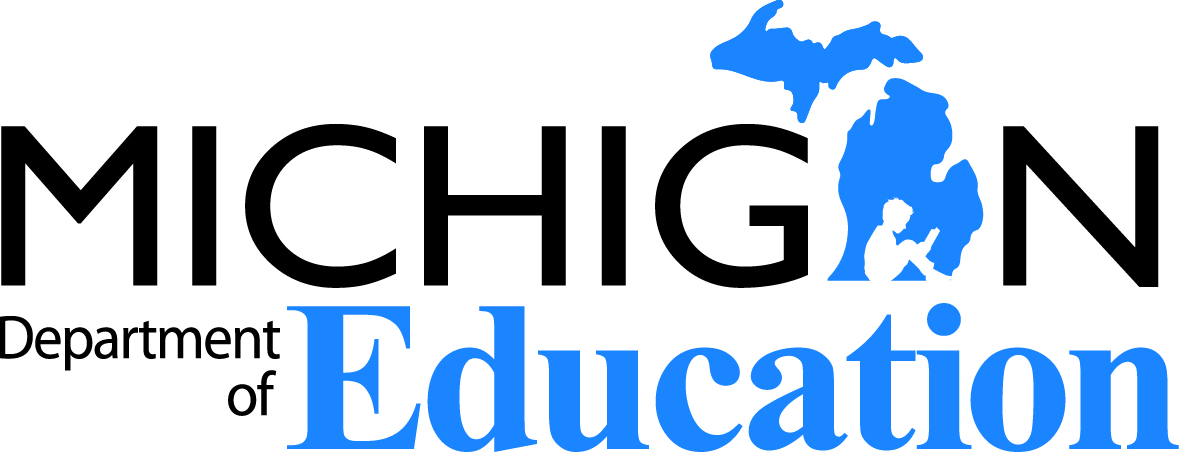
Become a Teacher
Choose a Preparation Program
We are excited you are interested in becoming a Michigan teacher!
INTRODUCTION
MICHIGAN LAW AND RULES REQUIRE THAT ALL TEACHERS COMPLETE AN APPROVED PREPARATION PROGRAM
Michigan law and rules require that all individuals complete an approved preparation program (e.g., math education, elementary education, English education) in order to become a teacher in Michigan. In addition to completion of an approved teacher preparation program, Michigan law requires that teachers:
Michigan approved Educator Preparation Providers (EPPs) guide prospective educators through these requirements.
Additional financial support may be available by way of student loan forgiveness, specifically for employment in schools identified as high need.
Review approved preparation programs.Choosing a
Subject Area
Choosing an Endorsement
In Michigan, you earn endorsements on your certificate based on the subject area and grade levels you want to teach. All certificates must have at least one endorsement and some endorsements cannot be earned alone (for example, special education endorsements require an endorsement in a general education subject area). Teachers who have more than one endorsement tend to be more marketable and able to find a job, as they could teach multiple subject areas. Work with your educator preparation provider to determine which endorsement areas are marketable in your area.
Do you already have a Michigan teaching certificate? Michigan also offers advanced options. Visit Michigan.gov/TeacherCert to learn more about additional endorsements and advanced programs.
Early Childhood General and Special Education (Birth-Kindergarten)
Lower Elementary Education (PK-3)
Upper Elementary Education (3-6)
Elementary K-5 All Subjects (K-8 All Subjects in a Self-Contained Classroom)
At this time, you can choose to focus at the elementary (K-8) level or the secondary (6-12) level.
Elementary
Elementary K-5 All Subjects (K-8 All Subjects in a Self-Contained Classroom)
AND Choose one or more of the following:
Secondary
Choose one or more of the following:
Beginning in Fall 2023, Michigan educator preparation programs will begin offering new endorsement areas focused specifically on the middle grades. You could choose one or more of these subject areas.
For high school teaching, you can choose a broad content area (like integrated science) or a specialized content area (like biology). The broad content areas allow you to teach in all of the sub-areas of that content (a person with an integrated science endorsement can teach a course called “Science” or a course called Biology. A person with a Biology endorsement can only teach a course called biology. You should work with your educator preparation program advisor to discuss which endorsement areas are marketable together.
Beginning in Fall 2023, Michigan educator preparation programs will begin offering new endorsement areas focused specifically on high school content. You could choose one or more of these subject areas.
Michigan also offers teaching programs in other areas of specialization. You could choose one or more of these options. The areas labeled with a * must be earned along with a content area endorsement, such as Elementary K-5 All Subjects (K-8 All Subjects in a Self-Contained Classroom) or 6-12 Mathematics.
Critical Shortage
K-12 teaching has been identified as one of Michigan's Hot 50 high-demand, high-wage careers. Some subject or geographical areas have greater demand than others. The Michigan Department of Education maintains two lists of subject areas for which there is a statewide demand of teachers for open postions. You may consider these lists in choosing subject areas to study that are the most marketable, or most likely to result in employment after graduation.
The United States Department of Education requires the Michigan Department of Education to provide a yearly list of discipline areas for which new teachers or teachers with student loans can obtain loan forgiveness or deferment. Eligibility for loan forgiveness or deferment is also dependent on working in the schools that have been identified with the highest need. More information on eligible schools can be found using the following directories:
The following subject areas were submitted as critical shortage areas for this purpose:
Have Questions?
Visit our Michigan Department of Education Educator Services website or reach out to a certification specialist.
